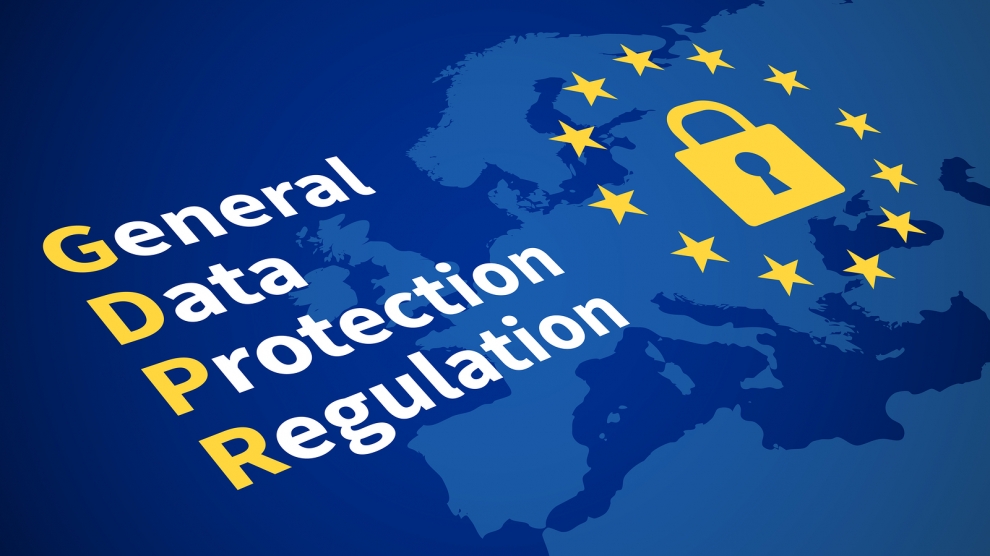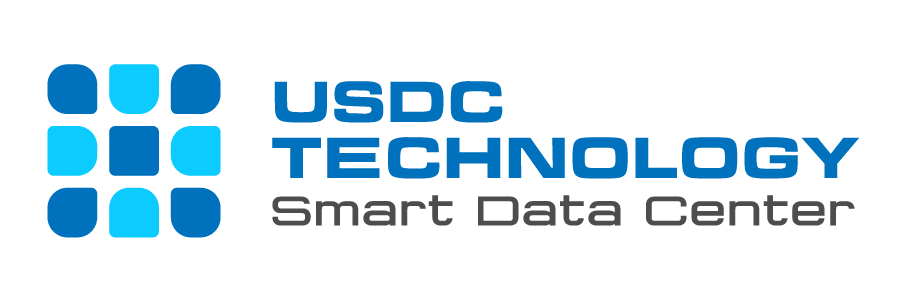Technology and Healthcare, a fusion that was once thought improbable, is now a reality that has ushered in numerous benefits for both patients and healthcare businesses.
However, this rapid advancement often outpaces our comprehension, creating vulnerabilities in data privacy that can lead to far-reaching repercussions.
According to Black Book Market Research, a staggering 36% of patients whose healthcare data was compromised in data breaches experienced identity theft.
Furthermore, healthcare organizations face significant financial repercussions, with several of them paying hundreds of millions of dollars annually to settle lawsuits related to data breaches affecting millions of patients
Hence, this article aims provide a more realistic view on the potential consequences that healthcare businesses may encounter in the digital health era journey. It also explores some of the best solutions with specific comparison to address data privacy concerns in the realm of digital healthcare : Seek data privacy experts advice, adopt cloud solution, or data center solution .
Help your business avoid significant financial repercussions with these insights
Table of contents:
I. The rise of Digital Health Solutions
II. The promising benefits of Digital health solutions
A. Why is Security and Data Privacy important
B. Consequences of Failing to Ensure Data Privacy in Healthcare sector
III. Security and Data Privacy challenges associated with Digital Health Solutions
IV. Measures to Ensure Data Privacy in Digital Health Solutions
V. Data Center Vs Cloud : Which one is best for Data privacy in Digital Healthcare
I. The rise of Digital Health Solutions

Traditional healthcare models, characterized by in-person doctor visits, paper-based medical records, and limited technological integration, have long been the backbone of healthcare delivery. These models have been well-established and reliable for many years. However, imagine traveling long distances for routine check-ups or specialist consultations. Then, consider spending hours in crowded waiting rooms, making healthcare appointments even more burdensome. To make matters worse, accessing and sharing medical history when needed becomes a significant challenge in such situations
Patients today seek healthcare experiences that are not only convenient but also tailored to their individual needs.
This is where Digital Health Solutions come into play.
Digital Health Solutions offer a more patient-centric and efficient approach to healthcare by encompassing a wide range of technologies, including electronic health records (EHRs), telemedicine, wearable devices, and health-focused mobile applications.
Hence, Digital health solutions are commonly considered to surpass traditional healthcare models in terms of Accessibility, Efficiency, Personalization, and Data Management.
II. The promising benefits of Digital health solutions

A. For Organizations
1. Improved data accessibility
Cost Savings: Digital Health Solutions reduce the reliance on paper-based records and manual data retrieval making it significant cost savings. A study by the Healthcare Information and Management Systems Society (HIMSS) found that hospitals can save an average of $20 in labor costs for every paper medical record replaced with an electronic version.
Faster Access to Information: The speed at which healthcare providers can access patient data is critical for decision-making and treatment. Quicker access to information can lead to shorter hospital stays and reduced costs. For instance, a report by the American Hospital Association (AHA) states that improved access to electronic health records has reduced hospital readmission rates by up to 10%, resulting in considerable cost reductions.
2. Streamlined administrative processes
Reduction in Administrative Costs: The automation of administrative tasks, such as appointment scheduling and insurance claims processing, cuts down on administrative costs. According to a report by the American Medical Association (AMA), healthcare practices can save an estimated $32,000 per year by automating administrative processes.
Billing Efficiency: Digital Health Solutions also enhance billing accuracy and efficiency, reducing claim denials. The Medical Group Management Association (MGMA) reports that practices using advanced healthcare IT systems experience a claim denial rate as low as 2%, compared to the industry average of 5-10%. This significantly impacts revenue and reduces the administrative burden.
3. Enhanced decision-making capabilities: Data-driven insights provided by Digital Health Solutions enable healthcare providers to tailor treatments to individual patient needs. A study published in Health Affairs found that personalized diabetes management reduced healthcare costs by $2,000 per patient annually.
B. For Patients
Patients experience increased convenience through remote consultations, personalized health monitoring, and easy access to medical records. Digital health solutions empower individuals to take a more active role in managing their health. According to a report by McKinsey & Company, telehealth visits surged by 4,347% in the United States in April 2020 compared to the same month in 2019. This spike in telehealth utilization highlights the convenience and popularity of remote consultations.
III. Security and Data Privacy challenges associated with Digital Health Solutions

A. Why is Security and Data Privacy Important in healthcare sector?
According to a survey conducted by Black Book Market Research, 93% of patients consider data security to be important in their healthcare decisions.
Patient trust is closely tied to the assurance that their sensitive health information is safeguarded. Besides, ensuring data privacy in telemedicine is crucial to address these concerns and build trust.
More importantly, Legal and Regulatory Compliance is of paramount importance for individuals, organizations, and governments:
HIPAA Compliance: The Health Insurance Portability and Accountability Act (HIPAA) sets strict standards for safeguarding protected health information (PHI). HIPAA violations can result in significant fines. For instance, Anthem Inc. paid a $16 million settlement following a major data breach affecting millions of individuals.
GDPR Compliance: In the European Union, the General Data Protection Regulation (GDPR) imposes stringent requirements for the protection of personal data, including healthcare data. Non-compliance can lead to fines of up to €20 million or 4% of the organization’s global annual revenue, whichever is higher.
B. Consequences of Failing to Ensure Data Privacy in Healthcare Sector

Failure to comply with laws and regulations of data privacy can result in legal consequences, including fines, penalties, and even criminal charges. These consequences can be detrimental to an individual’s or organization’s reputation and financial stability
1. Personal Information Leakage
Identity Theft: A study published in JAMA Network Open found that 36% of patients whose healthcare data was compromised in data breaches experienced identity theft. This underscores the serious risk posed by personal information leakage.
Insurance Fraud: The Ponemon Institute reported that medical identity theft, often resulting from personal information leakage, costs victims an average of $13,500 to resolve. This financial burden falls on both patients and healthcare organizations.
2. Network Security Risks
Cyberattacks: The cost of healthcare data breaches is substantial. The IBM Cost of a Data Breach Report revealed that the average cost per breached record in the healthcare sector is $429, significantly higher than the global average across industries.
Legal and Financial Repercussions: Healthcare organizations may face lawsuits, regulatory fines, and damage to their reputation following data breaches. For example, Premera Blue Cross agreed to pay $10 million to settle a lawsuit related to a data breach affecting millions of patients.
There are four tiers to consider when determining the type of penalty that might apply and vary widely depending on the jurisdiction, the type of violation, and the applicable laws or regulations.
Tier 1 – Warning or Informal Action
Tier 2 – Civil Penalties or Fines
Tier 3 – Administrative Actions
Tier 4 – Criminal Prosecution
3. Loss of Trust
Impact on Adoption: The Deloitte 2020 Survey of US Health Care Consumers found that 28% of respondents who had privacy concerns were less likely to use digital health technologies. A loss of trust can hinder the adoption of digital healthcare services, limiting their potential benefits.
Reputation Damage: Data breaches and privacy violations can lead to negative media coverage and damage the reputation of healthcare providers and organizations. Rebuilding trust can be a long and challenging process. High-profile incidents tend to make headlines, and the resulting negative media coverage can tarnish the reputation of healthcare providers and organizations.
Patients and the public often view such incidents as lapses in trustworthiness and competence.
Ensuring the protection of sensitive healthcare information is not only a legal obligation but also a critical factor in maintaining patient trust, avoiding financial penalties, and sustaining the progress of digital healthcare services
Want to know how to best ensure the protections of sensitive healthcare information?
Make sure to read the last part of this article or get free advice for your healthcare business here
IV.Measures to Ensure Data Privacy in Digital Health Solutions
1. Data Privacy Experts
- In-Depth Assessment: Engaging data privacy experts allows healthcare organizations to conduct a comprehensive assessment of their specific data privacy needs. These experts possess a deep understanding of healthcare data regulations and best practices.
- Identifying Vulnerabilities: Through this assessment, vulnerabilities in data handling and storage practices are identified. Experts can pinpoint potential weak points in the organization’s data security infrastructure.
- Tailored Solutions: With the insights gained from the assessment, organizations can tailor their data privacy solutions to address the specific challenges and risks they face. This ensures that resources are allocated efficiently to enhance data security where it matters most
2. Adopt High-Security Data Centers
- Advanced Safeguards: High-security data centers are equipped with advanced security measures such as biometric access control, video surveillance, and redundant power sources. These safeguards provide multiple layers of protection against physical breaches.
- Reduced Risk of Breaches: Storing sensitive healthcare data in certified data centers significantly reduces the risk of data breaches. These facilities are designed to withstand various threats, including natural disasters and cyberattacks.
- Compliance*: Many high-security data centers adhere to industry-specific regulations, such as HIPAA in healthcare. Compliance with these standards ensures that data is stored and managed in accordance with legal requirements.
3. Cloud solution
Robust Security Features
- Encryption: Cloud providers offer robust encryption mechanisms to protect data both in transit and at rest. This ensures that even if unauthorized access occurs, the data remains unintelligible.
- Regular Security Audits: Cloud providers conduct regular security audits and assessments to identify and address potential vulnerabilities. These audits help maintain a high level of security and compliance.
- Regulatory Compliance: Reputable cloud providers are often compliant with industry-specific regulations, such as HIPAA for healthcare data. This means that organizations can rely on the cloud provider’s infrastructure to meet legal requirements.
Access Control*: Cloud solutions typically offer robust access control mechanisms, allowing organizations to define who can access specific data and under what circumstances. This granular control enhances data privacy.
V. Data Center Vs Cloud : Which one is best for Data privacy in Digital Healthcare
Both cloud solutions and data center solutions can provide strong data privacy protections for digital health models, but the choice between them depends on various factors, including the specific needs and resources of the healthcare organization.
Let us safeguard your enterprise against avoidable setbacks
This table summarizes the key factors to consider when choosing between cloud and data center solutions for data privacy in a digital health model.
|
Aspect |
Cloud Solutions |
Data Center Solutions |
|
Scalability |
Highly scalable, adaptable to fluctuating data volumes |
Scalable but requires upfront investment for expansion |
|
Cost-Effectiveness |
Typically cost-effective with pay-as-you-go models |
Often involves higher upfront capital expenses |
|
Security and Compliance |
Strong security measures and compliance certifications |
Full control over security protocols, customizable |
|
Redundancy and Disaster Recovery |
Redundant data centers, robust disaster recovery options |
Customizable disaster recovery, may require additional investment |
|
Accessibility and Remote Work |
Enables remote accessibility and telemedicine |
Limited remote access capabilities |
|
Physical Control and Customization |
Limited physical control, less customization |
Full physical control, highly customizable |
|
Data Location and Data Sovereignty |
Data location determined by cloud provider |
Choose data center location, important for data sovereignty |
|
Predictable Costs |
Pay-as-you-go model, cost varies with usage |
Predictable fixed costs, suitable for stable data processing |
|
Integration with Legacy Systems |
May require adjustments for legacy system integration |
Allows integration with existing on-premises systems |
|
Full Control Over Security Measures |
Limited control compared to on-premises |
Complete control over security measures |
The decision ultimately depends on the organization’s specific needs, budget, and requirements for control and customization.
In conclusion:
As the healthcare sector continues its digital transformation journey, organizations must remain steadfast in their commitment to data privacy. Indeed whether through data centers, cloud solutions, or a combination of both, ensuring the confidentiality, integrity, and availability of patient information is non-negotiable. It is through unwavering dedication to data privacy that the healthcare industry can unlock the full potential of digital innovations while upholding its most sacred duty: providing quality care and safeguarding the well-being of patients.


